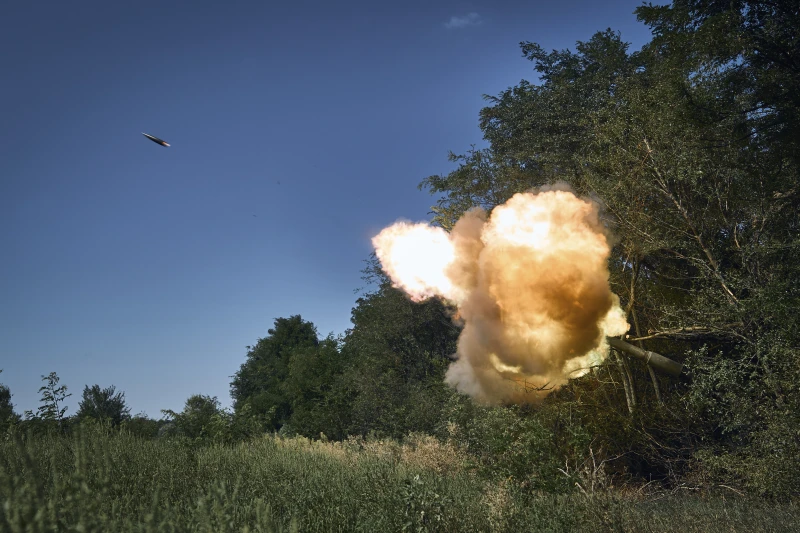Russian air defense systems successfully intercepted two drones on Thursday, marking the second consecutive day of such incidents. These aerial attacks disrupted flight operations at two major international airports. These events coincided with Ukraine’s apparent escalation of its offensive on Russian territory.
One drone was effectively neutralized in the Kaluga region southwest of Moscow, while another was intercepted near a significant Moscow ring road. Both Moscow Mayor Sergey Sobyanin and the Russian Defense Ministry attributed the responsibility for these attacks to Ukraine.
Fortunately, there were no reported casualties or immediate damage resulting from the drone interceptions.
We're now on WhatsApp. Click here to join.
Flight operations at Domodedovo Airport to the south of Moscow were temporarily suspended for a duration exceeding two hours. Similarly, Vnukovo Airport, located southwest of the city, had flights halted for over two and a half hours. In response to the disruption, some incoming aircraft were diverted to alternate airports, as reported by Russian news agencies.
The origins of the launched drones remain shrouded in uncertainty, and Ukrainian officials refrained from making an immediate comment. As customary, Ukraine typically refrains from confirming or denying involvement in such incidents.
The act of deploying drones towards Moscow, following more than 17 months of ongoing conflict, may not overtly serve Ukraine’s military objectives. However, this strategy has effectively induced a sense of unease among the Russian populace, forcing them to confront the tangible consequences of the ongoing conflict.
Russia’s Defense Ministry underscored its own defensive successes, reporting the prevention of Ukrainian drone attacks in Moscow-annexed Crimea. Specifically, two drones were intercepted near the port city of Sevastopol, while an additional nine were electronically disrupted, resulting in their subsequent crashes into the Black Sea.
A separate occurrence on the previous day drew attention, with Ukrainian media and social media platforms reporting the emergence of a dense plume of smoke over Sevastopol, a notable locale being the headquarters of Russia’s Black Sea Fleet.
Governor Mikhail Razvozhayev of Sevastopol promptly addressed the situation, attributing the source of the smoke to a “fleet training exercise.” He urged local residents to remain calm and assured them that no immediate threat was present.
These recent incidents have unfolded amidst the backdrop of Ukraine’s persistent counteroffensive. Both Ukrainian and Western officials have candidly expressed that this endeavor will be an arduous undertaking, involving a protracted struggle against the deeply entrenched forces aligned with the Kremlin.
In a significant development, the Pentagon is poised to allocate an additional $200 million in weaponry and ammunition to Ukraine. This support is intended to bolster the ongoing counteroffensive efforts. It is noteworthy that Ukraine has already received a substantial sum of over $43 billion from the United States since the commencement of Russia’s invasion last year.
Against this tumultuous backdrop, Ukraine’s presidential office conveyed somber news. During the period spanning from Wednesday to Thursday mornings, at least six civilians lost their lives, and a further 27 individuals suffered injuries.
Within eastern Ukraine’s Donetsk province, a barrage of artillery fire targeted 16 urban centers and villages. Tragically, three individuals lost their lives as a result. Similarly, in Zaporizhzhia, three people perished, and nine more sustained injuries, including a distressing incident involving an 11-month-old infant.
Simultaneously, in a disconcerting turn of events, an explosion rocked a factory responsible for producing optical equipment for Russian security forces. Reports from Russia’s state news agency, RIA Novosti, indicated that 12 individuals were unaccounted for following the blast. The explosion, which occurred on Wednesday, necessitated medical assistance for 71 people, as reported by Russia’s Emergency Ministry. As of yet, Russian officials have refrained from speculating on the likely cause of this explosion at the Zagorsk plant, further adding to concerns of potential Ukrainian drone incursions.
The far-reaching implications of Russia’s conflict with Ukraine extend to neighboring nations. One notable development involves the presence of Russia-linked Wagner group mercenaries in Belarus during this summer. These mercenaries’ brief mutiny in Russia has caused considerable unease among neighboring countries, particularly Belarus.
In response to these developments, Poland’s defense minister declared a pivotal decision on Thursday. The nation intends to station 10,000 soldiers along its border with Belarus, a measure prompted by apprehensions of a surge in illegal immigration.
Notably, Polish officials have leveled accusations against Belarusian authorities, alleging their orchestration of illicit border crossings to exert pressure on and disrupt neighboring countries. This aligns with the broader context wherein NATO countries, including Poland, have extended support to Kyiv’s ongoing war effort.





